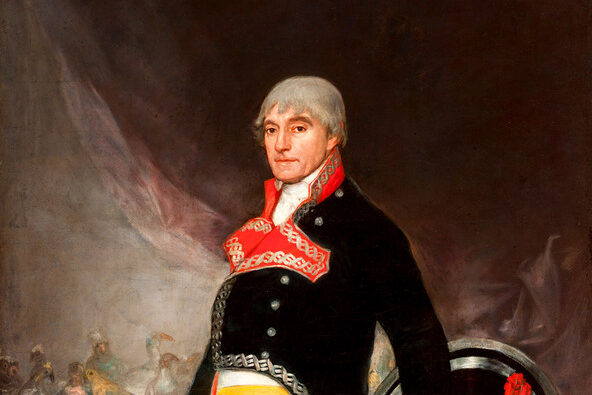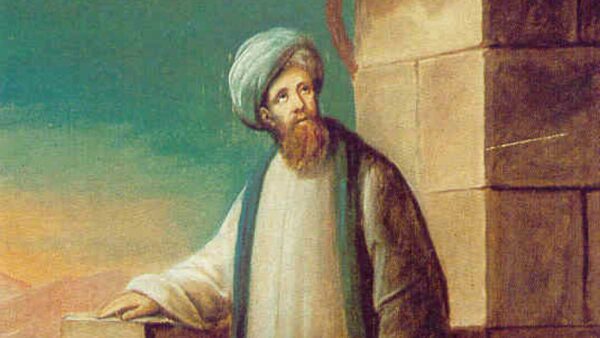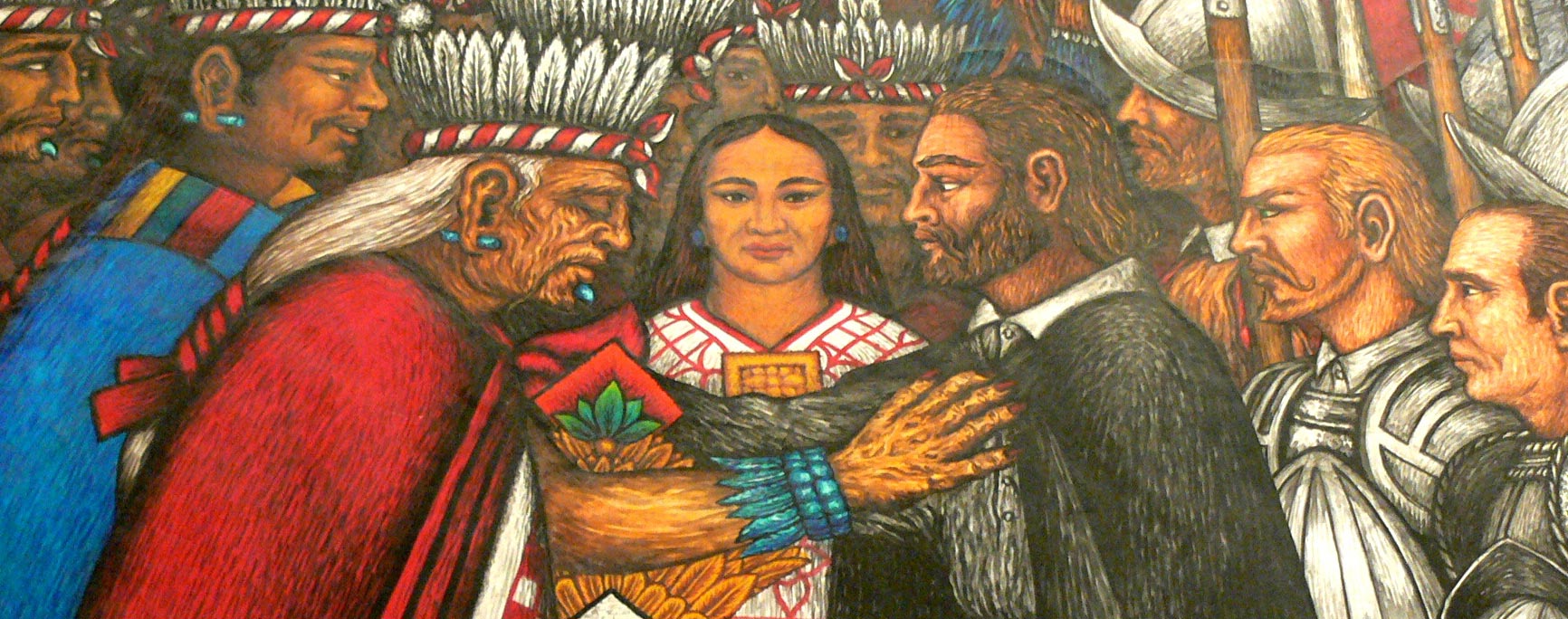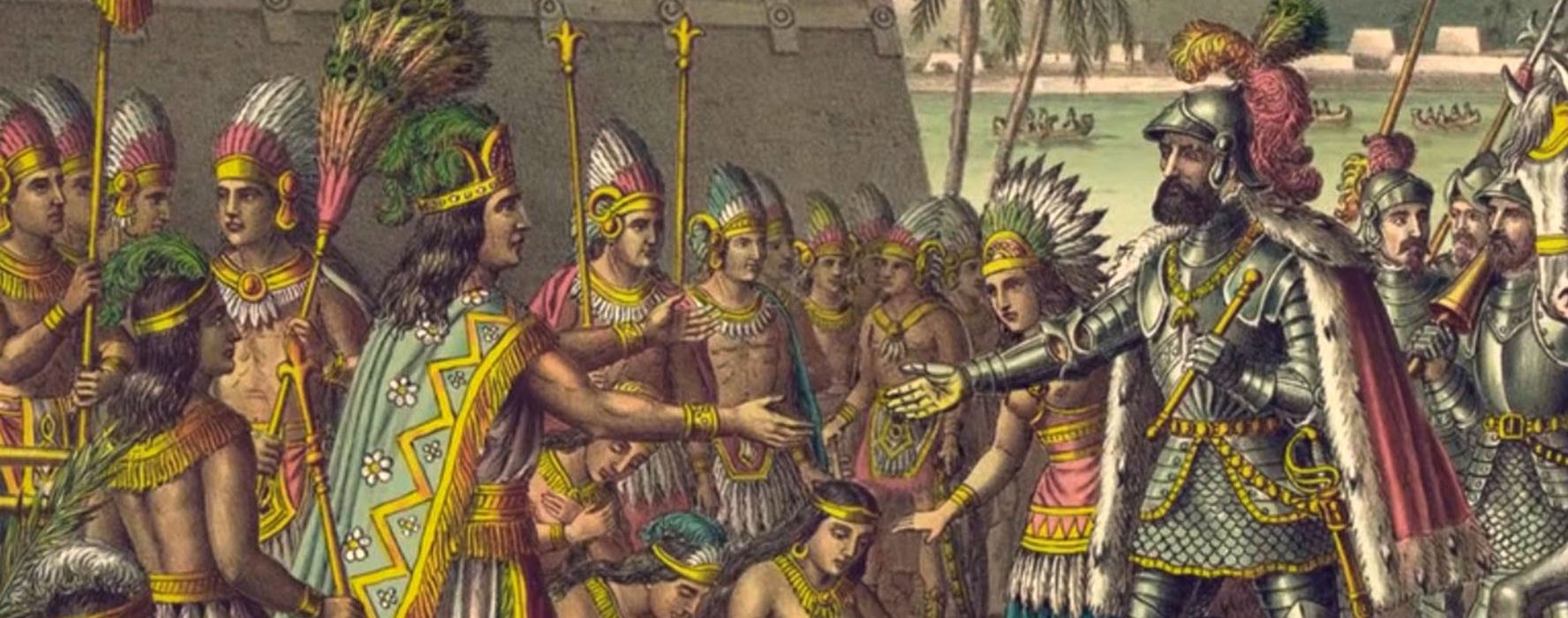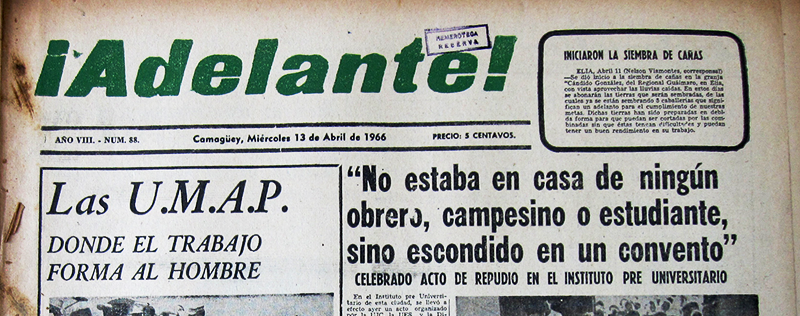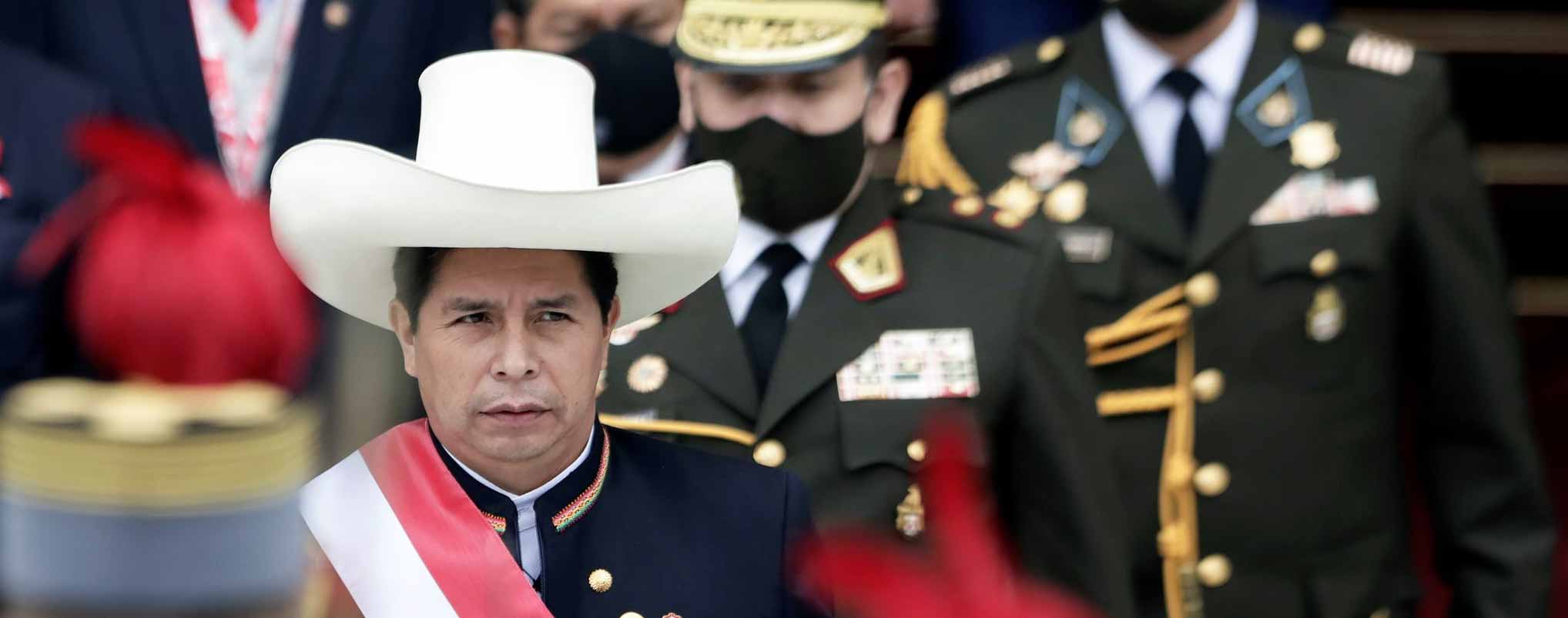Source:El Confidencial
There was an empire whose deeds and achievements have been conveniently disfigured to glorify their own, and which did much more than strip its adversaries naked.
Those who today throw stones and do not hide their hands because of the impunity that protects them, those who subjugate with unscrupulous thuggery, those who dispossess those who have nothing, those who appropriate what belongs to others knowing that they have a field fertilised by fearful fear, those who wield pathological ambition, those who have turned humanity into an inextinguishable forest fire, those who subject other humans to an implacable hell of need? Those same ones who with their dark practices have annihilated any vestige of morality in this wandering orphanage, unashamedly criticised, in the time when we inhabit the upper reaches of history, ferocious diatribes against a nation that gave everything and more.
Remind them, therefore, that there was an empire whose deeds and achievements they have conveniently disfigured to extol their own and which did more than strip its adversaries naked (or, in other words, build and leave a legacy that was not scorched earth). And while we’re at it, let’s give those critics in the stalls a moral bonus to redeem themselves for their shamelessness in setting themselves up as champions of democracy with the support of half-baked cronies.
Einstein said, among his many celebrated phrases, that “whatever a man ignores, does not exist for him. That is why each person’s universe can be summed up in the size of his knowledge”. And Spinoza added that “believing is easier than thinking, hence the reason why there are more believers than thinkers”. It should also be noted that believing does not require much glucose combustion, it is, as they say, a form of sustainable economy with minimum effort and maximum yield.
For all these reasons, those who ride through history between belchs and brayings, deforming it as they see fit, are generally not very edifying characters; in plain English, a shower of poo that cannot be fixed even with the reset button. Walking towards the truth (if it exists) is a heroic challenge, an act that oscillates between hesitation and uncertainty, between heartbreak and consolation, and can leave its mark in many ways. There are those who raze a country to the ground to the point of enslaving its future and that of its inhabitants, and others who build it.
That is why today we are going to deal with a subject that cries out on its own for the injustice to which it has been subjected, and that is none other than impersonation. In the literary world as well as in the pantheon of heroes, adversaries have been so full of criticisms of our methods during the more than three hundred years of our presence in America, Europe, Asia, Oceania and add that this is not about being “very” Spanish, but simply about defending our history.
My Basque grandmother, a teacher and historian repressed by the regime, an integral Christian, who was a prolific practitioner of Buddhist compassion or the compassion preached by Christ, who cares, it doesn’t make any difference, was deprived of her teaching post for her dubious affinity with the winning ideology in the terrible civil conflict that devastated our homeland. Fortunately, the French consular delegation, led by Mr. Picavea, had told her months earlier to put her property in safekeeping on the other side of the border, where her brother lived, who was not in sympathy with the repressive drift of the coup plotters.
Well, this noble woman had a library that, at that time, caused my small stature more than astonishment. Every time I entered it, I was astonished. It was the temple of truth.
In the evenings, that enormous celestial creature, mother of another colossal woman who was my mother, who sometimes cooked or sometimes taught the secrets of the piano to generate GDP, would come to our bedside to talk to us about the enormous truths hidden among the great lies designed for the consumption of the general public. One of the times he summoned us, the tribe of little infants that we were, to give us the Saturday talk. This talk could revolve around universal or Spanish history. In this case there was an absolute astral conjunction.
I drew my conclusions from those edifying teachings, which revealed to me that revisionism is fundamental after the victory of the victors, since these, in the parenthesis of their stay in the limelight, jibarise history and the dissenters. As that oracle called Arguiñano (my favourite philosopher) says, you have to speak with reason.
Continuing with plagiarism and impersonation, when they tell us about the American Wild West, they don’t tell us that the Spanish Crown opened hundreds of trade routes with posts (the presidios), missions with schools for the Indians (although it is true that they were told that being pantheist or animist was fatal and not to be done). Nor do they tell us how they adapted the odyssey of the phenomenon that was Pedro Serrano, an ingenious castaway who landed on a lost Caribbean island around 1526 and was magically reincarnated a century later in an autobiography – fictional to boot – as the character of Robinson Crusoe. And what happened to Juan Ortiz? Yes, the captive prisoner of some part-time anthropophagi who married a Pocahontas who healed his body… Well, as he didn’t register the work with the Intellectual Property Office, he found a clever competitor with better marketing.
‘Marketing’, the key word, the subject in which we (Spain) have always limped. And what can we say about the pickpocket Livingstone? An English gentleman who seized, a century after, the discovery of the illustrious Jesuit Pedro Páez Jaramillo, the first European discoverer of the sources of the Blue Nile in 1618…
More? Well, let’s go for it
Brigadier General Félix de Azara, an amateur palaeoanthropologist of great reputation, naturalist and ordered by the monarch Carlos IV after the signing of the Treaty of San Ildefonso (1777) to define borders between Portugal and Spain in the area of the Guarani missions in Paraguay, aimed high before the Darwinian theory of the Origin of Species saw the light of day. It is recorded that Darwin read his writings and that in the first English edition there was a mention alluding to the Spaniard’s work, but in the second printing the English conjurer lost his scruples and that was that. And that he was a British Gentleman …
Ruy López de Villalobos, born in Malaga and an incredible navigator who, with no predetermined purpose (possibly following in the footsteps of Urdaneta in the Tornaviaje), ran headlong into the locals in the Molokai or Maui area. The boat was carrying huge chickens brought from the Philippines, with which they feasted the natives and left them a good supply of pots and pans and salt. Well, a century later, a certain James Cook, dedicated, of course, to the large-scale trade (it goes without saying that he was English) discovered Hawaii for His Gracious Majesty and there, in situ, a native pissed off by the English excesses on the island, educated him for posterity.
But before that, this piece of work had stolen an extensive cartography by bribery in Manila around 1768 and following the course of the maps he would discover Australia and New Zealand, where he again realised that the Spaniards had beaten him to it, something he obviously did not reflect in his report to the Admiralty. But, no matter how many tricks the British invent, Juan Fernandez, a Spanish frigate captain, was there in 1576 and Cook in 1770, two centuries later. They are pitiful because they are always late for the big events. The New Zealand Ministry of Education is seriously considering rewriting this conveniently hidden milestone in the school books of this great nation.
And while we’re at it, in Nome (Alaska) we had a top military base and permanent fish factory, in Taiwan we had free access and preferential visas, and in Tasmania we made friends with the Aborigines, who thought we were magicians, because we set fires with mirrors, the ultimate. Ah! I forgot to mention that our beloved Blas de Lezo decimated two thirds of a British fleet of 178 ships in 1741 and the Encyclopaedia Britannica devotes a disfigured one-page paragraph to the event, the sarcasm of which invites one to doubt its author or authors.
Without going any further, Don Luis de Córdova seized 55 frigates and transports in the middle of the Atlantic bound to help the Britsh Army during the Revolutionary War, an action in which he literally broke the London Stock Exchange; the Glorioso gave them an anthological corrective which, given its epic nature, could in itself generate a tearjerker film. To make matters worse, we must emphasise the feat of Francisco de Hoces (in 1526) and Francis Drake (in 1578) discovered the same thing, only the Spaniard did it half a century earlier. Fatal, they are always late and beating their chests. What karma…
This Spain, always confronted by those who make a living out of it, with the incomprehensible help of a public loyal to frentism, a Spain that is now the meat of shadows and an uncertain future, could do with reciting that phrase by Gabriel García Márquez that says (sic) “It is not true that people stop pursuing dreams because they get old, but that they get old because they stop pursuing their dreams”.
Either that, or make roundabouts.
Share this article
On This Day
- 1572 Andrés Díaz Venero de Leyva founded the town of Guaduas (Colombia).
- 1578 Brunei becomes a vassal state of Spain.
- 1672 Spanish comic actor Cosme Pérez ("Juan Rana") dies.
- 1693 Painter Claudio Coello dies.
- 1702 The Marquis de la Ensenada was born.
- 1741 Spanish troops break the siege of castle San Felipe in Cartagena de Indias (Colombia).
- 1844 The Royal Order of Access to Historical Archives was promulgated.
- 1898 President Mckinley signed the Joint Resolution, an ultimatum to Spain, which would lead to the Spanish–American War.
History of Spain
26 August 2020
27 January 2021
Communism: Now and Then
23 December 2022
28 July 2021
